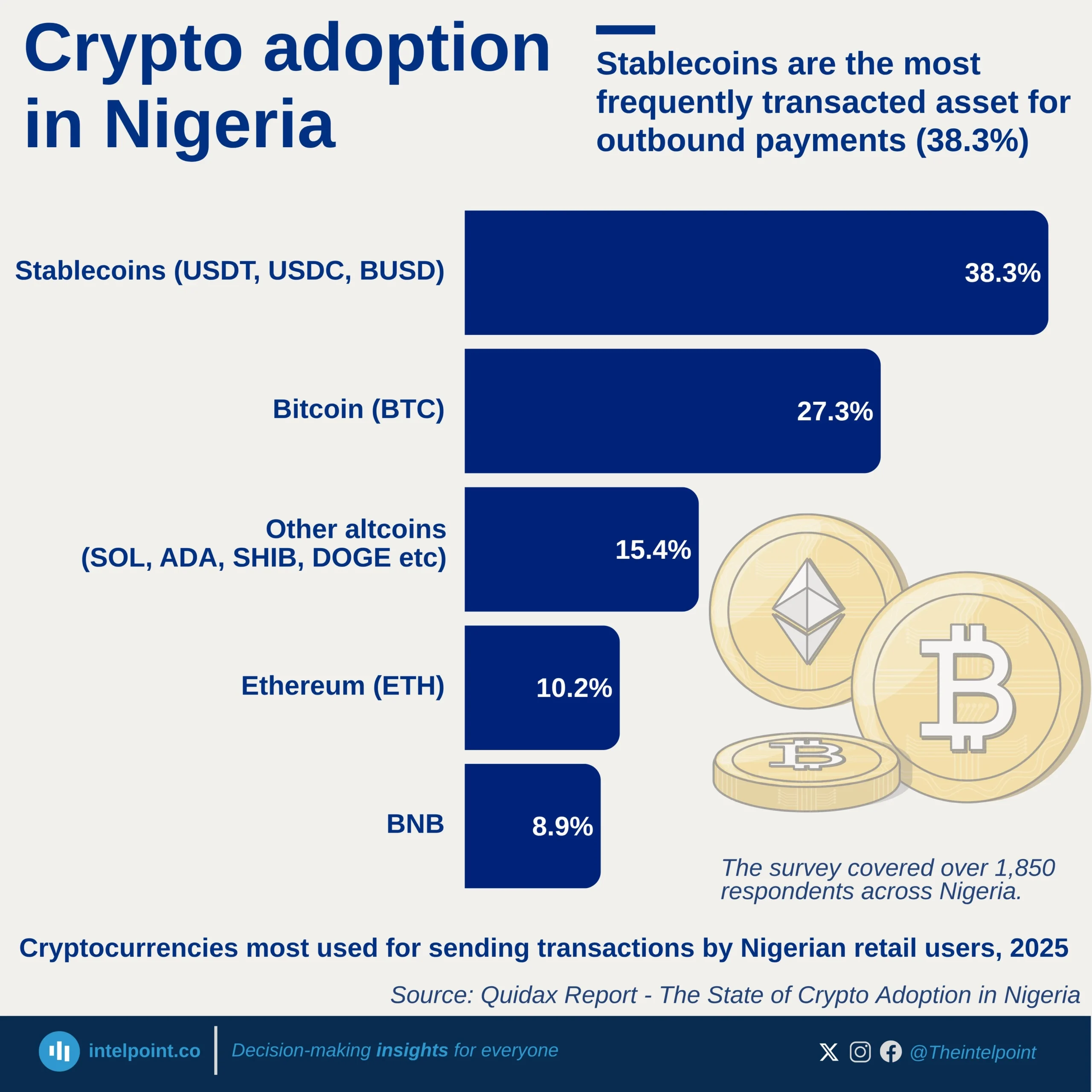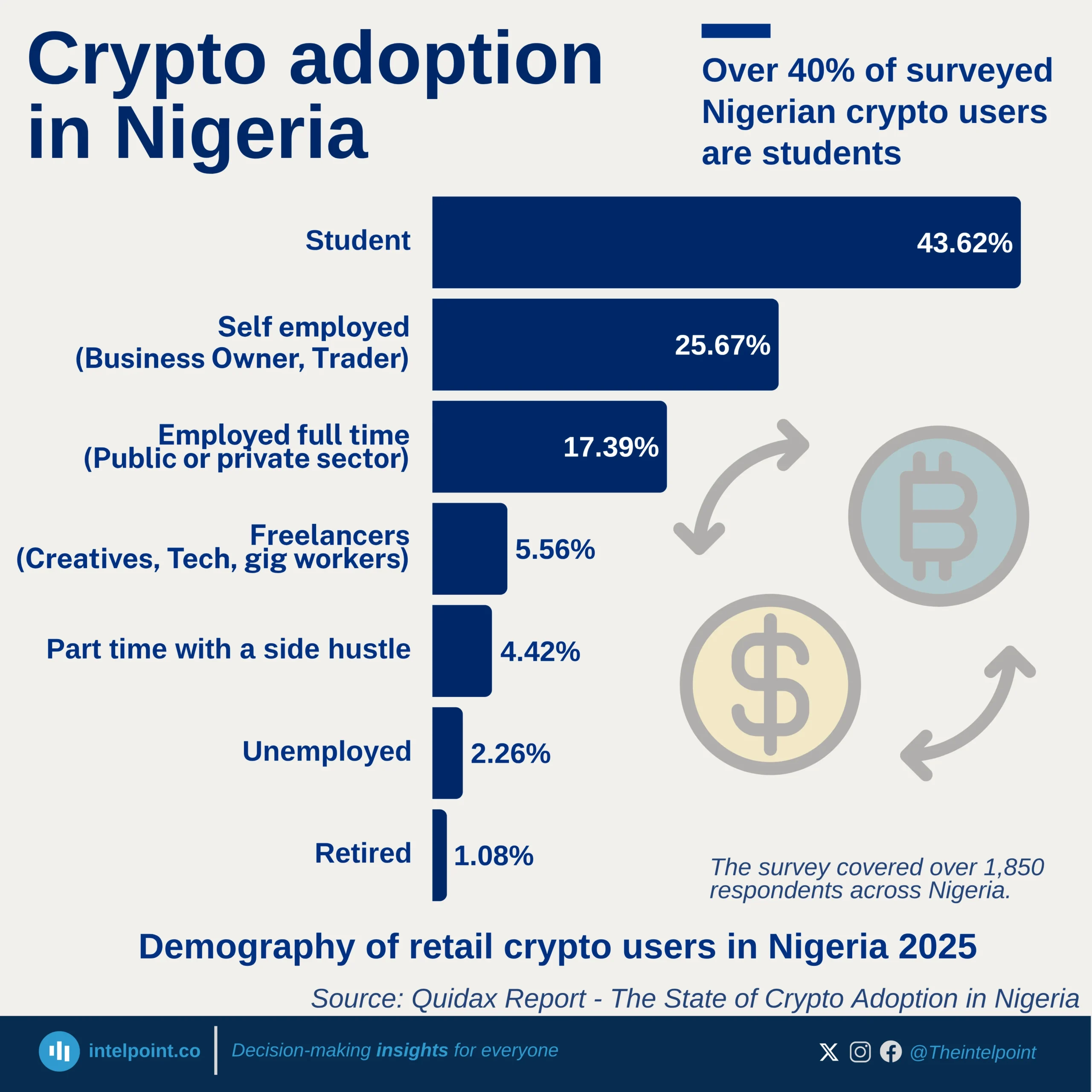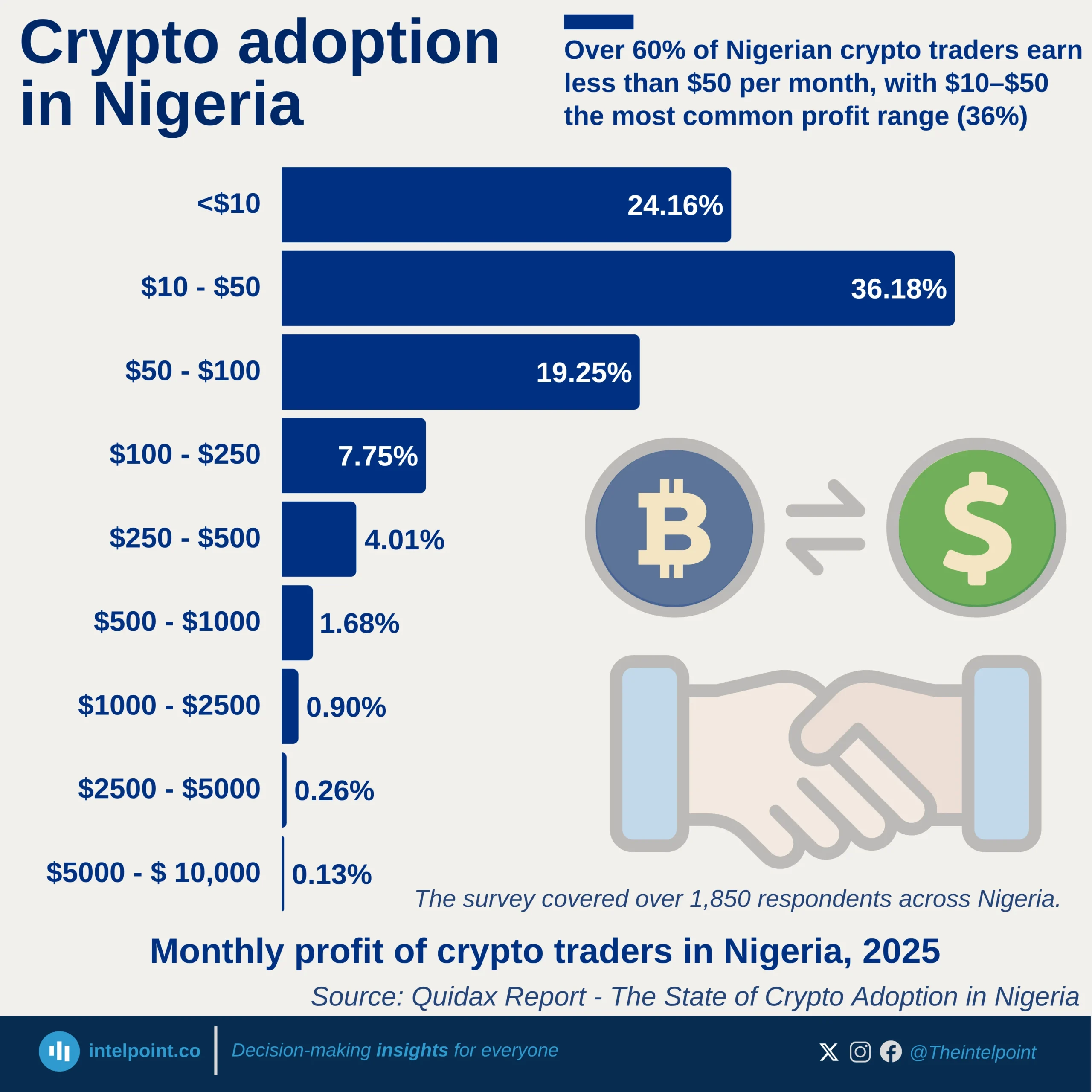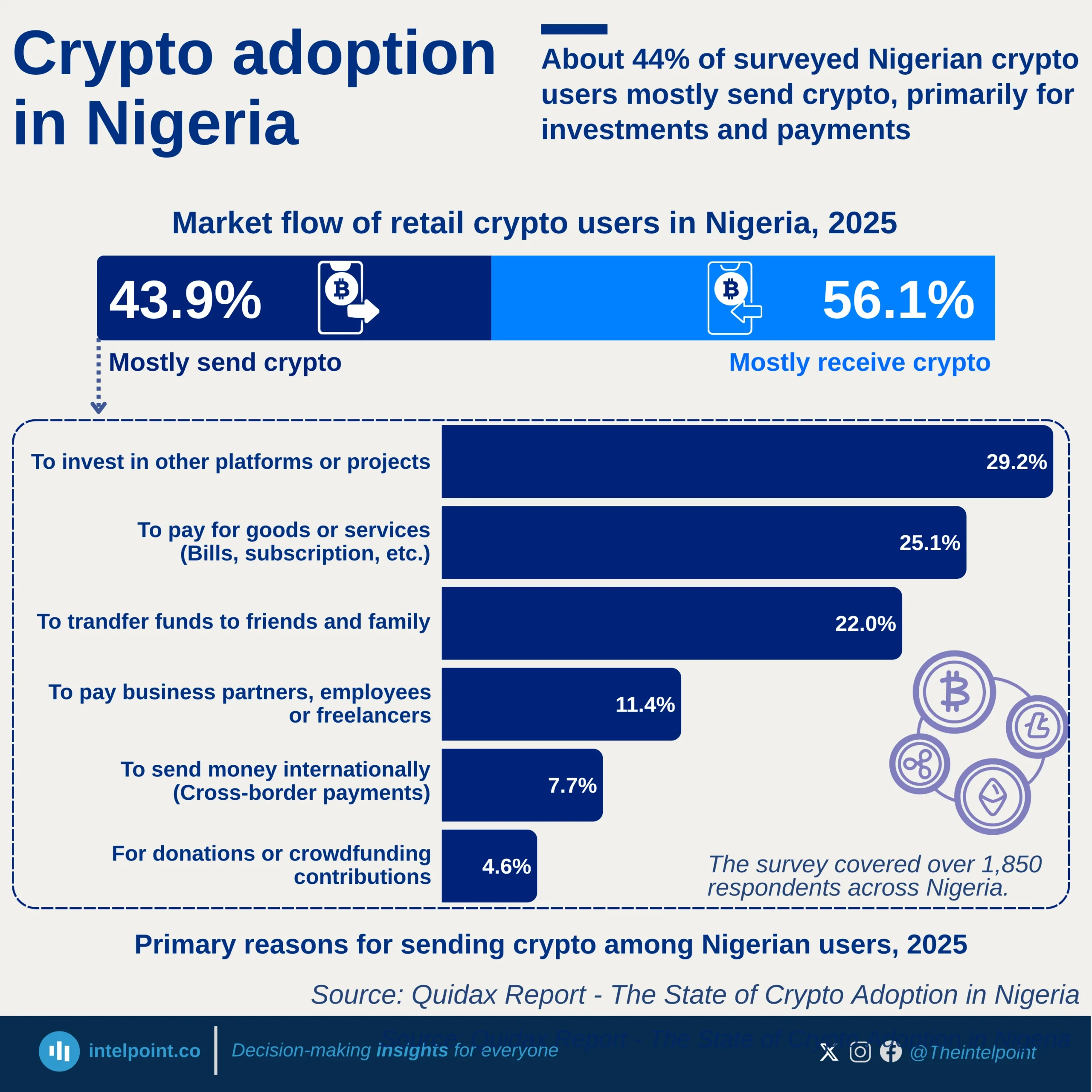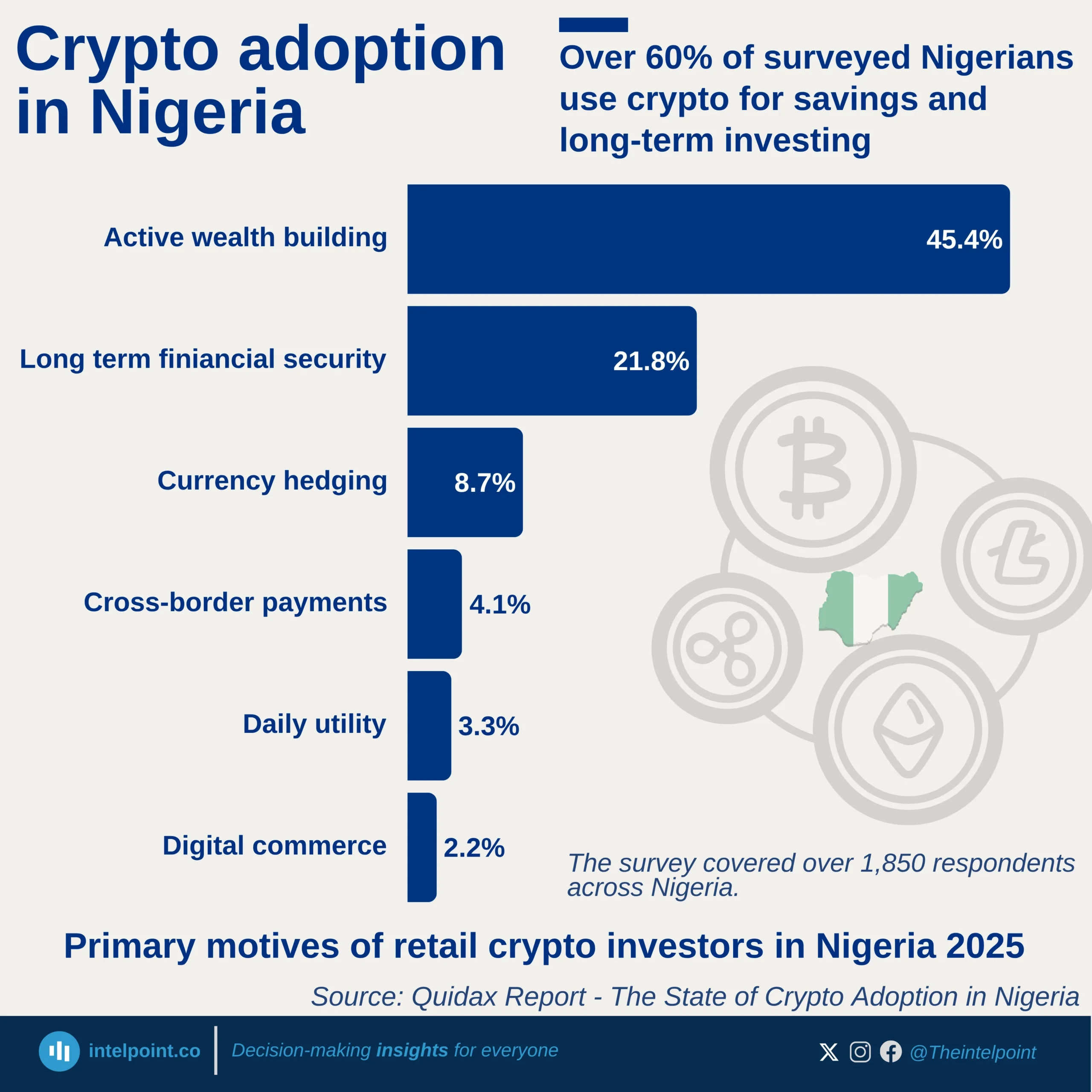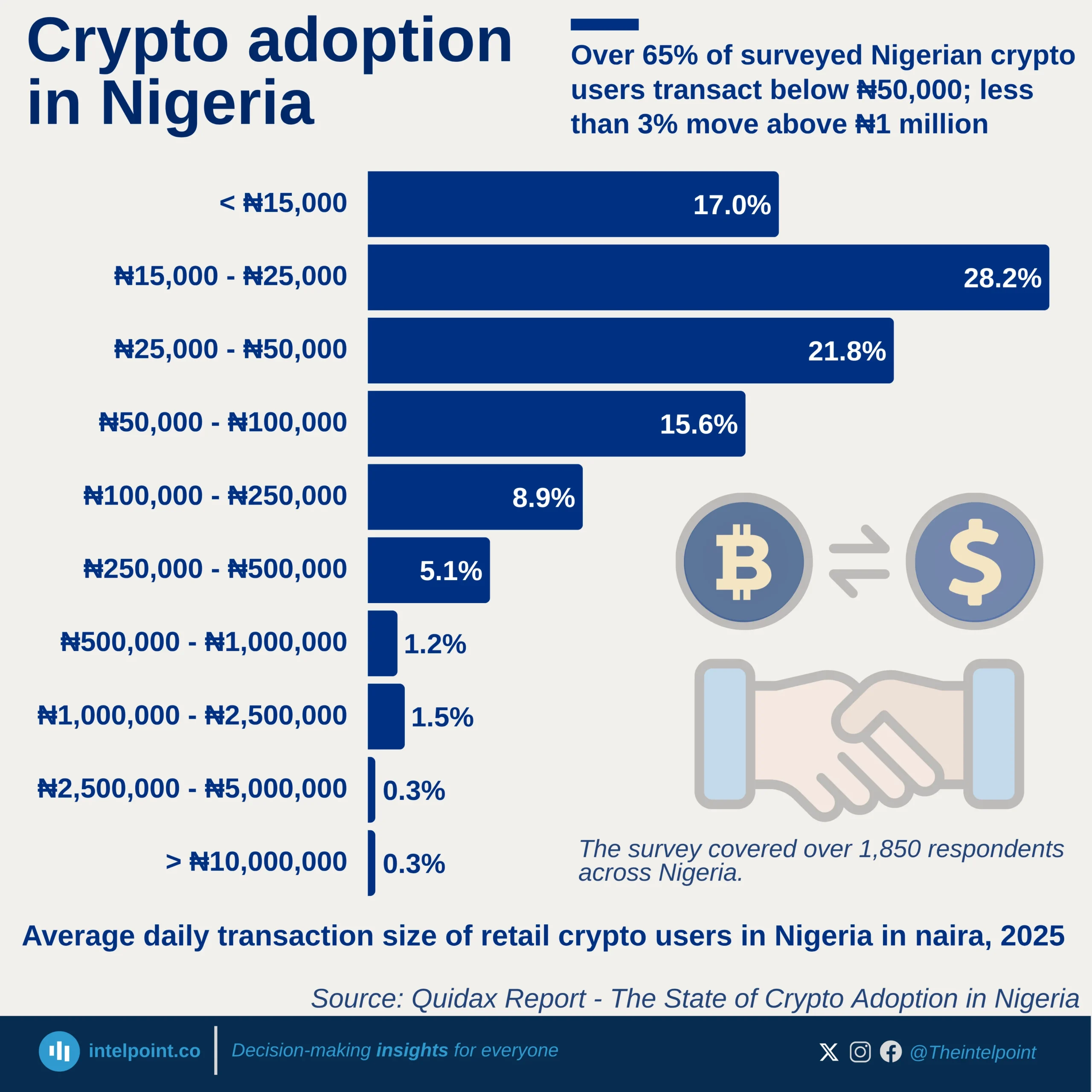Crypto adoption in Nigeria faces some hurdles, with volatility and security risks ranking as the top concerns among users. Knowledge gaps and regulatory uncertainties contribute to hesitation, as users struggle to navigate compliance issues and understand crypto’s mechanics. However, the relatively low concern about app usability suggests that accessibility is not a major barrier. Strengthening consumer protections, fostering education, and clarifying regulations could enhance confidence and drive wider crypto adoption.
